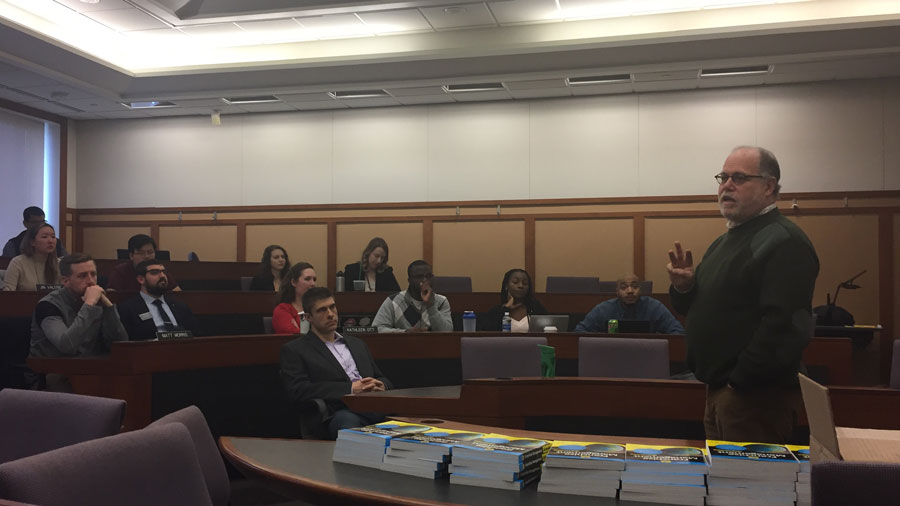|
Recently, a member of our external advisory board, Michael Seid, international franchising consultant, came to speak to a group of Fisher MBA students on campus. Well over 40 students attended the lecture, on a topic of great interest in the business world: franchising. Franchising is defined as licensing the right to use a firm’s business model and brand for a prescribed period of time, and Seid is definitely an expert in the practice. The co-author of Franchising For Dummies (co-written with the late Dave Thomas, founder of Wendy’s), as well as co-author of a book released this year, Franchise Management for Dummies, he has spent much of his life working in the world of franchising as a consultant.
At Fisher, Seid shared his insight and expertise on various aspects of franchising, but one topic that many of the students that attended the session enjoyed very much was social franchising. Social franchising takes a new spin on the model you might recognize from the fast-food world. The difference is that instead of businesses providing just consumer products or services, social franchise systems provide public-oriented services like health care or water in an entrepreneurship/non-profit hybrid model that can be replicated just like a restaurant chain. In particular, Seid discussed a group of birthing centers that he and his partners have helped to launch in Ghana. The centers use a hub-and-spoke model where locally deployed clinics are owned and operated by nurses or midwives, and focus on prenatal care, but a master franchiser operates centrally-located hub clinics to which mothers can travel to give birth or if they need more advanced care. The master franchiser also provides business support and assures strict adherence to brand standards, delivering a high-quality and standardized experience to expectant mothers. While this network of birthing centers is new and results aren’t yet in, if the social franchising model Seid and his colleagues have used for medical clinics in Kenya and Rwanda are any indication, the result will be better quality service with lower fees than government-operated centers. “I’ve always had an interest in applying a business model into expanding free health clinics, so I found this information very useful,” said one MBA student who attended the talk. “It’s amazing how so many different people can seamlessly adapt a business model for the overall growth of the organization.” GWI’s External Advisory Board members Michael Seid and Tom Blackstock (a former Coca Cola executive) have collaborated with Fisher faculty member Keely Croxtonand others on the GWI team (including several cohorts of Fisher MBA students) to develop a social franchising model for water services in rural parts of developing countries. The model aims to use market mechanisms to help villages keep newly established or rehabilitated water systems working for the long-term, something that has been a failure point for many water philanthropy projects in the past. A version of the model will be rolled out in two villages in Tanzania partnering with GWI to launch pilot Sustainable Village Water Systems this fall. Comments are closed.
|
Blog Team
Posts on our blog are contributed by a team of professionals dedicated to developing valuable resources for the Social Sector Franchising community. Archives
May 2024
|


 RSS Feed
RSS Feed
